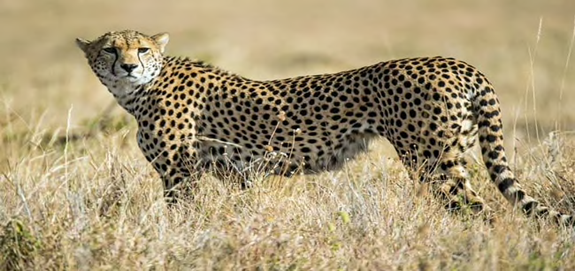Cheetahs finally lands in India
Context
Recently, eight cheetahs (3 male, 5 Female) have landed in Gwalior from Namibia’s capital Windhoek and reintroduced in Kuno National Park. 
Earliest historical references
- They are found in classical Greek records of India, from Strabo, about 200 years before the Common Era.
- In the Mughal Period, cheetahs were used very extensively for hunting.
- Emperor Akbar had 1,000 cheetahs in his menagerie.
- Central India, particularly the Gwalior region, had cheetahs for a very long time.
- Various states including Gwalior and Jaipur used to hunt cheetahs.
- The country's last spotted cheetah died in Sal forests of Chhattisgarh's Koriya district in 1948 and the wild animal was declared extinct in the country in 1952.
- Maharaja Ramanuj Pratap Singh, the ruler of a small princely state in today’s Chhattisgarh shot India’s last 3 surviving cheetahs.
Challenges associated with coexistence approach
- Unfenced system: Kuno NP will be more challenging, as it is not enclosed / fenced. There have been no successful cheetah reintroductions into unfenced systems.
- Anthropogenic threats to cheetah survival include snaring for bush meat and retaliatory killings due to livestock depredation.
- Human-animal conflict: This would place them at the risk of human-related mortality including snaring and retaliatory killings by livestock farmers.

